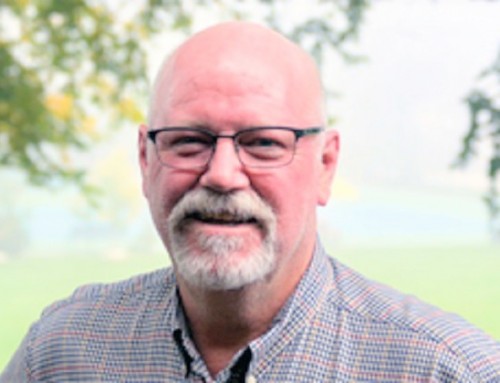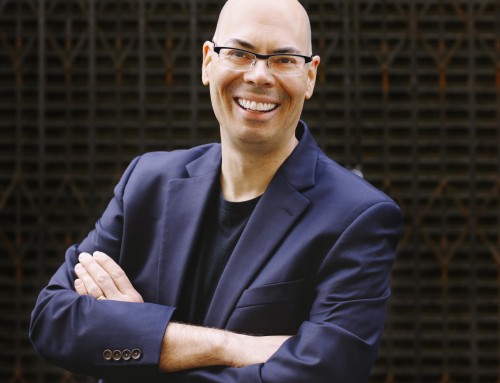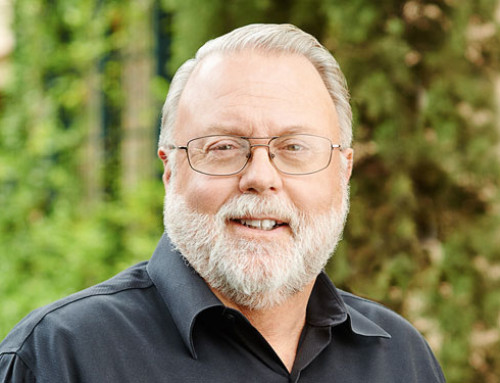It’s been a very exciting year to date for ASLA both at the local and national level. Like our Chapter President Andy Bowden and President Elect Duane Border, I also attended this year’s Mid-Year Trustee Meeting in Washington DC to discuss and vote on issues that help promote not only our interest in southern California, but our profession as a whole. As your Trustee, I have participated in many debates, conversations, and study sessions while collaborating and advocating side-by-side with some of the most passionate Landscape Architects I’ve ever had the privilege of working with. Some of the topics we discussed at our meeting included:
Center for Landscape Architecture
Although some of you may never have a chance to visit your Center, I hope that you can embrace its purpose and importance to our profession. Located in Washington, D.C.’s historic Chinatown, the ASLA Center for Landscape Architecture will be a showcase for the profession. Designed to achieve LEED Platinum and WELL Silver ratings, the building will embody the profession’s core value of stewardship, reflect the Society’s leadership in the design industry, and serve as a model for sustainable green building design. The new Center will dramatically enhance ASLA’s ability bring together the membership, the community, allied professionals, and public officials. The design will give the Center a vibrant street presence. A state-of-the-art meeting, reception, and exhibition center on the first floor will provide an attractive and flexible venue for events, educational programs, and exhibitions. At the street level, the new reception and exhibition space will provide an enhanced venue for hosting hundreds of annual visitors to our green roof. As the Chinatown Green Street Demonstration Project develops, the meeting and exhibition space will host community meetings and charrettes and allow easy access for the public and others to engage and learn more about our profession. Between the reception space and the green roof will be a three-story atrium with natural-light harvesting technology that will bring daylight into the core of the building, unify the work space, and provide a striking design element that reflects ASLA’s commitment to sustainable design. Advanced mechanical systems will meet WELL standards for air, acoustic, and water quality, and will support a healthy working environment for ASLA staff, volunteers, and visitors.
Your Center is well under way with ASLA staff scheduled to move back in this November. To view details on the building and opportunities to donate please follow the attached link. http://cla.asla.org/
Government Affairs
The House recently passed H.R. 5538, the fiscal year (FY) 2017 Interior-Environment spending bill, by a vote of 231-196, mostly along party lines.
The measure provides increased funding for the National Park Service and Centennial activities, but also makes significant cuts to the Land and Water Conservation Fund, and the Environmental Protection Agency’s climate change and other environmental programs. The Senate has not taken action on its FY 2017 Interior-Environment spending bill, so it is unclear if a final bill will reach the president’s desk.
Get involved- this is a good time to reach out to your legislators—federal, state, and local—to invite them to a site tour of a landscape architecture project. ASLA has developed the Guide to Hosting Tours with Elected Officials, a step-by-step guide to help chapters and firms successfully host site tours. Many legislators set aside time in August and October to meet with constituents for tours and other meetings.
Climate Change
A number of government affairs initiatives that involve climate change mitigation are under way. Climate change mitigation can be defined as human interventions designed to reduce the sources of greenhouse gas emissions (GHGs) or enhance the capability of sinks to store these gases. Through organizational partnerships and grassroots advocacy, ASLA Government Affairs supports state and federal legislative objectives that facilitate the work of landscape architects with regional and local elected leaders and planning departments to design and implement the land-use components of mitigation strategies and programs.
ASLA continues to advocate for several climate change prevention strategies including active transportation programs like the Transportation Alternatives Program, Recreational Trails Program, Safe Routes to School, TIGER, and Complete Streets. Along with providing transportation choices like walking, bicycling and transit, these transportation programs also help to reduce our everyday carbon footprint by reducing the reliance on automobiles which burn fossil fuels and contribute to global warming. ASLA also advocates for parks and recreation programs, including the Land and Water Conservation Fund (LWCF), and the Sustainable Urban Forest program, which assist landscape architects in planning and designing parks, recreational facilities, trails, and urban streetscapes. These projects, which typically include vast green spaces, help to naturally sequester carbon and clean the air. ASLA also advocates on behalf of water and storm water management policies that promote the use of green infrastructure to address water quality and quantity issues. Climbing global temperatures have been linked to the increase and severity of storms. Green infrastructure projects can help mitigate the impact of these weather occurrences by reducing urban heat island effects and replacing impervious spaces that easily flood.
Member and Chapter Services Dues Increase
While the Society has successfully weathered the economic constraints of the past seven years, program costs continue to rise, averaging five percent in 2014 and 2015. The recommended dues increase will help to avoid cuts in the program services provided to members. Additionally, we need to be mindful of the potential increase in programing associated with the Center for Landscape Architecture and the plan to redefine the ASLA brand.
Several of our National Committees met multiple times to review the economic condition of the Society and discuss the factors noted above. The discussions focused mainly on the uncertainty in future inflation and the need to keep programs areas financially supported. The final consensus was to align the dues rate increase with the five percent increase in program costs experienced over the prior two years.
The recommendation is to increase dues five (5) percent or fifteen (15) dollars, effective January 1, 2017, for Full, International, and Affiliate Members with no dues increase in 2018 was approved.
Investing in our Emerging Professionals by establishing a Student / Associate Advisory Committee
During the recent discussions regarding emerging professionals, the Board explored options for improving engagement. Last year, ASLA aggressively promoted volunteer service to emerging professionals, prompting a spike in student and associate participation in ASLA committees. To further enhance this influence on ASLA programs and policy, two additional committees are proposed. In addition to providing advice regarding ASLA program development, both committees will elect a chair that will serve as the Student Representative and Associate Representative to the ASLA Board of Trustees. This will replace the existing process for electing a Student Representative and adds the new position of Associate Representative, both of which would be nonvoting positions.
The Student Advisory Committee will advise ASLA leaders and staff on key policies and programs that have an impact on student members and chapters. Draw on their own experiences and that of their fellow students to provide input and feedback to inform annual program development and priority-setting. Focus on recruitment and retention of student members. Provide support to the student chapters and student chapter presidents. Develop content for publications and social media. The committee chair will serve as the Student Representative to the Board of Trustees, a non-voting position, and serve as the liaison between the Board and the committee.
Local Chapter Issues we are continuing to follow and further develop include the following.
In April we finally reached the end of a very long and arduous process following the Independent Technical Panel (ITP) and their Report to the Legislature regarding MWELO. CCASLA and chapter leaders have been most concerned with the attempts to weaken the Landscape Architects Practice Act through either expanding the exemptions & exceptions to practice or exempting residential design altogether. Through our efforts we were able to convince the ITP to drop those provisions and change the Report’s recommendations to utilize the current system covered under our existing Practice Act. A special thank you to Jon Wreschinsky San Diego Chapter for his leadership on this issue.
Business Opportunities
Our Chapter will be establishing a list of firms and individual licensed members that provide all levels of design for residential projects. Following the outcome of a questionnaire that will be sent out shortly you will have the option of being added to a list of members that provides this service. The list will then be available as a resource for those homeowners seeking your professional talents. Currently our chapter receives many inquiries a month on this topic and has no real means of giving recommendations. The development of this list will help us better connect our members with contract opportunities.
Membership Satisfaction
An ongoing discussion both nationally and locally is the issue of “Membership Satisfaction”. Currently our chapter is developing a Strategic Plan that will help us understand future trends and plan for directional changes our profession may face. We will be relying on you to help us plan for our future. Understanding that the boundaries within our chapter are vast and the issues from region to region may vary, makes it even more important that you participate in our upcoming survey.
I look forward to future discussions with you regarding our profession and how we can best prepare our chapters for the future.
Perry Cardoza
Southern California ASLA Trustee



